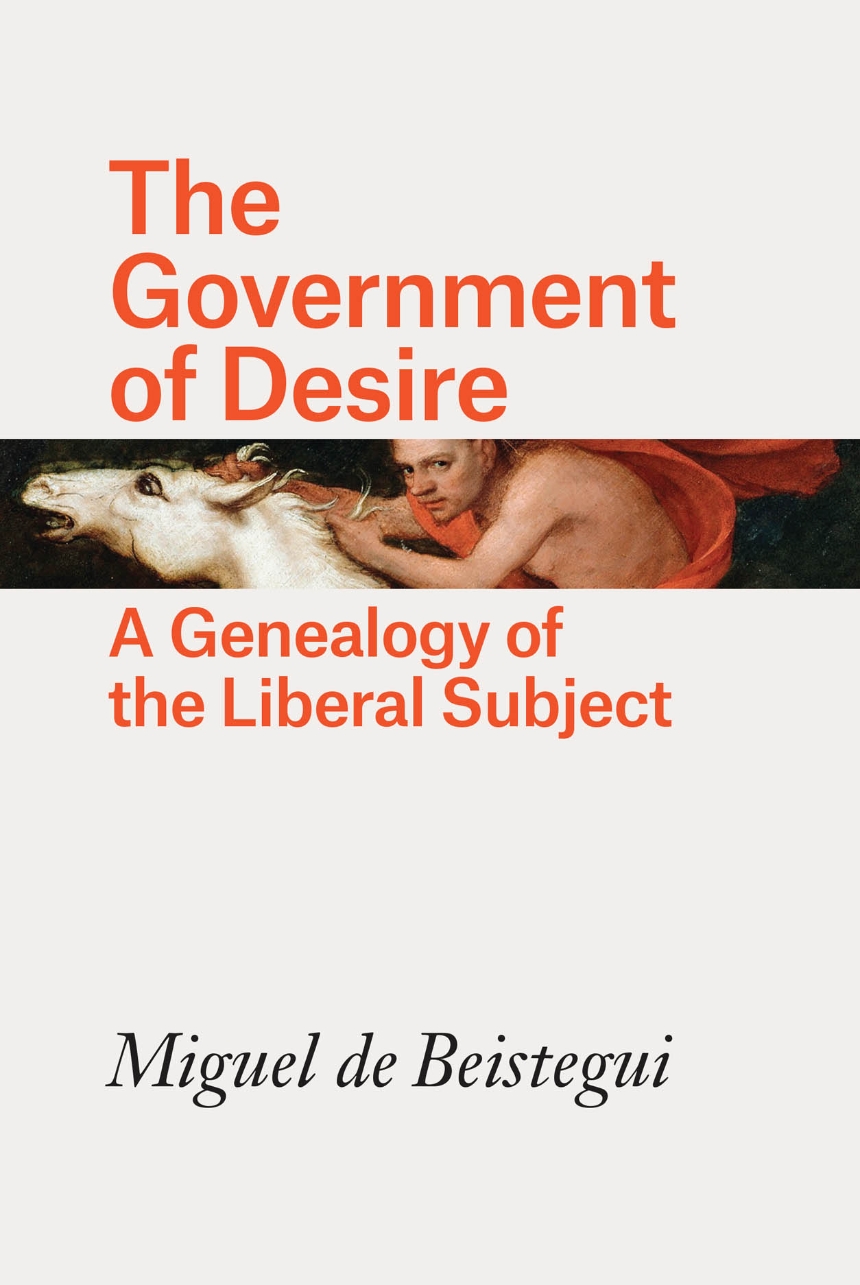The Government of Desire
A Genealogy of the Liberal Subject
Liberalism, Miguel de Beistegui argues in The Government of Desire, is best described as a technique of government directed towards the self, with desire as its central mechanism. Whether as economic interest, sexual drive, or the basic longing for recognition, desire is accepted as a core component of our modern self-identities, and something we ought to cultivate. But this has not been true in all times and all places. For centuries, as far back as late antiquity and early Christianity, philosophers believed that desire was an impulse that needed to be suppressed in order for the good life, whether personal or collective, ethical or political, to flourish. Though we now take it for granted, desire as a constitutive dimension of human nature and a positive force required a radical transformation, which coincided with the emergence of liberalism.
By critically exploring Foucault’s claim that Western civilization is a civilization of desire, de Beistegui crafts a provocative and original genealogy of this shift in thinking. He shows how the relationship between identity, desire, and government has been harnessed and transformed in the modern world, shaping our relations with others and ourselves, and establishing desire as an essential driving force for the constitution of a new and better social order. But is it? The Government of Desire argues that this is precisely what a contemporary politics of resistance must seek to overcome. By questioning the supposed universality of a politics based on recognition and the economic satisfaction of desire, de Beistegui raises the crucial question of how we can manage to be less governed today, and explores contemporary forms of counter-conduct.
Drawing on a host of thinkers from philosophy, political theory, and psychoanalysis, and concluding with a call for a sovereign and anarchic form of desire, The Government of Desire is a groundbreaking account of our freedom and unfreedom, of what makes us both governed and ungovernable.
By critically exploring Foucault’s claim that Western civilization is a civilization of desire, de Beistegui crafts a provocative and original genealogy of this shift in thinking. He shows how the relationship between identity, desire, and government has been harnessed and transformed in the modern world, shaping our relations with others and ourselves, and establishing desire as an essential driving force for the constitution of a new and better social order. But is it? The Government of Desire argues that this is precisely what a contemporary politics of resistance must seek to overcome. By questioning the supposed universality of a politics based on recognition and the economic satisfaction of desire, de Beistegui raises the crucial question of how we can manage to be less governed today, and explores contemporary forms of counter-conduct.
Drawing on a host of thinkers from philosophy, political theory, and psychoanalysis, and concluding with a call for a sovereign and anarchic form of desire, The Government of Desire is a groundbreaking account of our freedom and unfreedom, of what makes us both governed and ungovernable.
320 pages | 6 x 9 | © 2018
Philosophy: General Philosophy, Philosophy of Society, Political Philosophy
Political Science: Political and Social Theory
Reviews
Table of Contents
Acknowledgments
Introduction: Why Desire?
Part One Homo Oeconomicus
1 The Birth of Homo Oeconomicus
2 Man’s “Vain and Insatiable Desires,” or the “Oeconomy of Greatness”
3 Neoliberal Governmentality
Part Two Homo Sexualis
4 “Abnormal Desires” and “Barbarous Instincts”: The Birth of the Sexual Pervert
5 Instincts or Drives? The Birth of Psychoanalysis
Part Three Homo Symbolicus
6 Recognition, That “Most Ardent Desire”
7 Struggles for Recognition
8 The Consolations of Recognition
Conclusion: Desire, Again . . .
Notes
Bibliography
Index
Introduction: Why Desire?
Part One Homo Oeconomicus
1 The Birth of Homo Oeconomicus
2 Man’s “Vain and Insatiable Desires,” or the “Oeconomy of Greatness”
3 Neoliberal Governmentality
Part Two Homo Sexualis
4 “Abnormal Desires” and “Barbarous Instincts”: The Birth of the Sexual Pervert
5 Instincts or Drives? The Birth of Psychoanalysis
Part Three Homo Symbolicus
6 Recognition, That “Most Ardent Desire”
7 Struggles for Recognition
8 The Consolations of Recognition
Conclusion: Desire, Again . . .
Notes
Bibliography
Index
